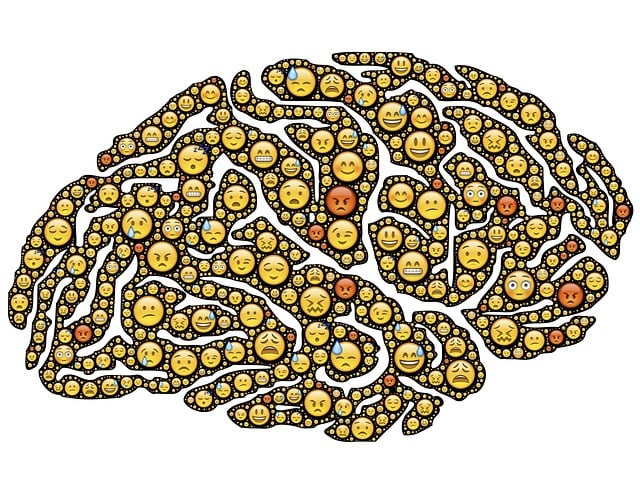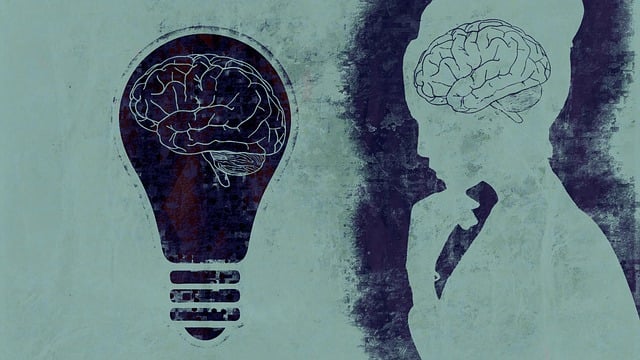Recognizing postpartum depression (PPD) in older adults is vital despite ageist stereotypes that underestimate its prevalence. While commonly associated with youth, PPD affects all ages and presents unique challenges for elders seeking therapy due to stigma, fear of judgment, and a perceived lack of understanding. Effective treatment combines stress management techniques with psychotherapy. Healthcare professionals must be vigilant for subtle signs of distress in at-risk patients, facilitating early detection and timely interventions through empathy building and mental health education programs. Long-term well-being strategies, such as tailored Cognitive Behavioral Therapy (CBT), Mental Wellness Coaching Programs, self-awareness exercises, and compassion cultivation practices, are crucial for managing crises like PPD, promoting resilience, fostering self-compassion, and enhancing quality of life in vulnerable populations.
In today’s fast-paced world, crisis intervention strategies are vital for supporting vulnerable individuals, particularly elders facing issues like postpartum depression. This article guides readers through recognizing crisis situations in the elderly and offers evidence-based intervention strategies for effective support and therapy. We explore implementing guidance tailored to long-term well-being, emphasizing the importance of early detection and appropriate therapeutic approaches, including those addressing therapy for elders with postpartum depression.
- Recognizing Crisis Situations in Elders: Postpartum Depression
- Intervention Strategies for Effective Support and Therapy
- Implementing Guidance for Long-Term Well-being
Recognizing Crisis Situations in Elders: Postpartum Depression

Recognizing a crisis situation is the first step towards providing effective intervention. In the context of older adults, postpartum depression (PPD) often goes unnoticed due to ageist stereotypes and the belief that depression is a ‘younger person’s disease’. However, PPD is a severe mental health condition that can affect individuals of all ages, including the elderly. It’s characterized by intense sadness, anxiety, and exhaustion after giving birth, and if left untreated, can have detrimental effects on both the individual and their family.
The unique challenges faced by older adults in seeking therapy for PPD include stigma, fear of judgment, and a perceived lack of understanding from healthcare providers. Stress management techniques, coupled with psychotherapy, have proven effective in treating PPD. Encouraging open conversations about mental wellness and emotional healing processes is vital to early detection. Healthcare professionals should be attuned to subtle cues of distress in older patients, especially those who may have experienced significant life changes, such as retirement or the loss of a spouse. By recognizing PPD in this demographic, providers can initiate timely interventions, promoting recovery and enhancing the overall quality of life for affected individuals.
Intervention Strategies for Effective Support and Therapy

Effective crisis intervention strategies are crucial for providing immediate and impactful support to individuals experiencing distress, especially vulnerable populations such as elders and new mothers suffering from postpartum depression. One key strategy is empathy building, where professionals foster a deep understanding of the person’s emotions and perspectives, creating a safe space for expression. This not only helps in de-escalating intense feelings but also encourages open communication, allowing for more tailored interventions.
Additionally, mental health education programs designed to increase public awareness campaigns can play a significant role in reducing stigma and promoting early intervention. By educating communities on recognizing symptoms of depression, these initiatives encourage people to seek help sooner. Such programs can be adapted to suit diverse cultural contexts, ensuring accessibility and relevance for different populations. This holistic approach—combining empathy, education, and accessible therapy—is vital in effectively supporting individuals through crisis points like postpartum depression.
Implementing Guidance for Long-Term Well-being

Implementing guidance for long-term well-being is a critical aspect of crisis intervention strategies, particularly focusing on vulnerable populations like elders and individuals experiencing postpartum depression. Beyond addressing immediate crises, these interventions aim to equip individuals with tools that promote sustained mental health and resilience. Therapy for elders, tailored to their unique needs and life experiences, can involve Cognitive Behavioral Therapy (CBT) adapted for age-related cognitive changes or solutions-focused approaches that help them rediscover meaning and purpose.
Integrating Mental Wellness Coaching Programs Development, Self-Awareness Exercises, and Compassion Cultivation Practices into the care plan can significantly enhance long-term outcomes. These strategies foster self-compassion, emotional regulation, and enhanced social connections, all vital components of mental wellness. By promoting self-awareness, individuals gain insights into their triggers and coping mechanisms, empowering them to navigate future challenges more effectively.
Crisis intervention strategies are vital tools for supporting elders experiencing postpartum depression, a significant mental health concern in this demographic. By recognizing symptoms and implementing effective interventions as outlined in this article—including guidance on therapy for elders postnatal depression—we can foster long-term well-being. These strategies empower caregivers and healthcare professionals to navigate challenging situations, offering hope and healing to those in crisis.














